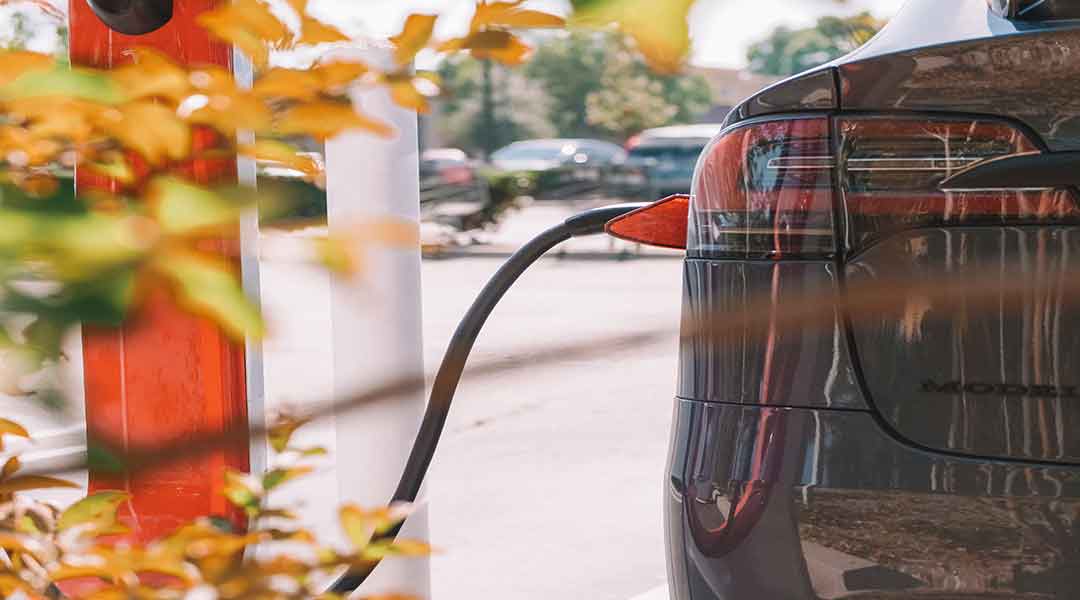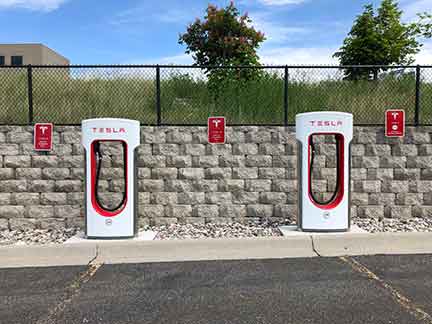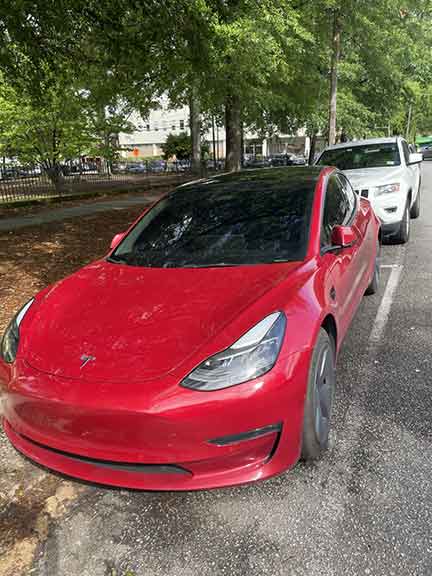Tesla being charged on a Supercharger. (Photo courtesy of Kindel Media)
An electric vehicle boom is underway in the state of South Carolina, but many Tesla owners are wondering: Where are the incentives?
The question isn’t so out of the blue, though.
Many states and even countries have been providing new EV owners with incentives to promote the switch from gas to electric, but not South Carolina.
In January of this year, Tesla Germany confirmed that it will provide a €6,750 ($7,000) subsidy for the Model Y and Model 3 according to the U.S.-based, online publication Electrek.
So, what does this mean for the United States, and more specifically, South Carolina?
Right now, the state provides no EV incentives for individuals, only manufacturers.
“There are no state incentives” for buying an electric car, said Eddie Cogdill, EV Coordinator for the S.C. Department of Commerce. “The only thing available right now is federal tax credit.”
Residents can qualify for up to $7,500 of tax credit federally, Cogdill said.
If people are willing to buy used electric vehicles, $4,000 or up to 30% of the purchase price of the vehicle qualify for federal tax credit.
Many people are taking this route.
“I snagged a (Tesla) Model 3 Long Range for just under $25k, so I should get that credit next year, making it a $21k Long Range Model 3,” said Austin Ammarell, a Model 3 owner in Columbia. “That’s the best deal out there right now in my opinion.”
But with no statewide incentives and a spike in EV owners in the state, Tesla owners are seeking more.
“South Carolina and most Southern states are a decade or more behind most West Coast and Northeast states on EV charging infrastructure and incentives,” said Damien Smith, another Columbia Tesla owner. “Not to mention overall road infrastructure and design standards to include multimodal transit options.”
Smith is looking to other states for a precedent.
“In other states, particularly West Coast states like Oregon, have much more generous state, local and utility companies incentives,” he said. “For example, you can buy a Model 3 in Oregon for as little as $27,000 after the incentives.”
The average Model 3 Tesla in South Carolina costs around $38,000 in South Carolina, according to the CarGurus website.
It’s no coincidence that California has the highest number of registered electric vehicles in the United States while at the same time having the most incentives.
California is offering up to a $7,000 rebate to those who purchase a battery-electric vehicle and even hybrids as well, according to the government electric transportation website Moving California.
This is not to say that there aren’t benefits in South Carolina to switching to electric.
Cogdill said some energy companies such as Santee and Dominion offer lower electric bill rates to EV owners if they charge their vehicles during off-peak hours with an at-home charging station.
That aligns perfectly with South Carolina’s newest bill in the House of Representatives that would allow for state tax credits for the installation of home charging stations.
There are similar incentives already at the federal level for such stations, Cogdill said.
Together, would they be a big-enough incentive to make a difference?
David Lusskin, Columbia Tesla Model X owner, doesn’t think so.
“I paid over $80,000 for my car,” he said. “At the end of the day, the $300 or so that I save off of my electric bill does not matter.”
Lusskin is looking more for California-style credits.
“What the state needs to do is make EVs more affordable for the people that need them,” he said. “For the people that don’t have enough gas money to make it to work.”




